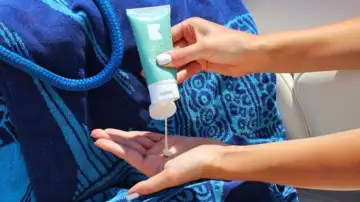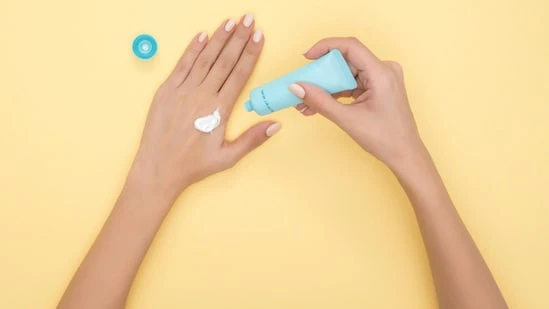Sunscreen is often seen as an outdoor essential, but did you know your skin needs its protection even when you’re indoors? In an interview with HT Lifestyle, Dr. Ruben Bhasin Passi, consultant, dermatologist, CK Birla Hospital Gurugram said, “Very few people understand that even when indoors, their skin requires protection.
Sunscreen is not only meant for the beach or sunny weather; it’s an everyday item, wherever you go.” Is your sunscreen safe or ageing your skin faster? Watch out for these hidden irritants linked to skin damage
1. UV rays can travel through windows
Glass will filter out UVB rays, but UVA rays, which travel deeper into the skin, will penetrate. Indoor exposure to UVA can also lead to premature ageing, wrinkles, and pigmentation. Sitting near a sunny window at work or driving can add immensely to your UVA exposure.
2. Blue light from screens affects skin
We sit for hours in front of laptops, smartphones, and tablets. These output high-energy visible (HEV) blue light, which can cause skin damage, pigmentation, and premature aging over the long term. A broad-spectrum sunscreen with built-in blue light protection can assist.
3. Cumulative sun damage adds up
Sun damage isn’t just about the occasional sunburn, it’s the steady build-up of daily exposure that contributes to skin problems down the line. Putting on sunscreen indoors guarantees even protection, keeping damage from silently piling up over time.
 4. Indoor lighting can cause skin damage
4. Indoor lighting can cause skin damage
Some halogen and fluorescent lights produce minor levels of UV radiation. Although less strong than sunlight, repeated exposure in home or office settings can still have an effect on skin health, particularly in individuals who are susceptible to pigmentation.
5. Prevention is easier than repair
Treating sun damage, whether it’s fine lines, dark spots, or uneven skin tone, often requires expensive and time-consuming procedures. Daily sunscreen use is a simple, cost-effective preventive measure that protects your skin’s health and appearance.
6. It supports skin treatments
If you’re undergoing skin treatments like chemical peels, laser therapy, or acne management, sunscreen is crucial, even indoors. Without it, the results can be compromised, and post-treatment pigmentation can occur.
“Select a broad-spectrum sunscreen with SPF 30 or greater, put it on as the final step of your morning skin care routine, and reapply every 2-3 hours if you are in front of windows or using devices for extended periods of time. Your skin will appreciate it in the years ahead,” Dr. Ruben Bhasin Passi added.
